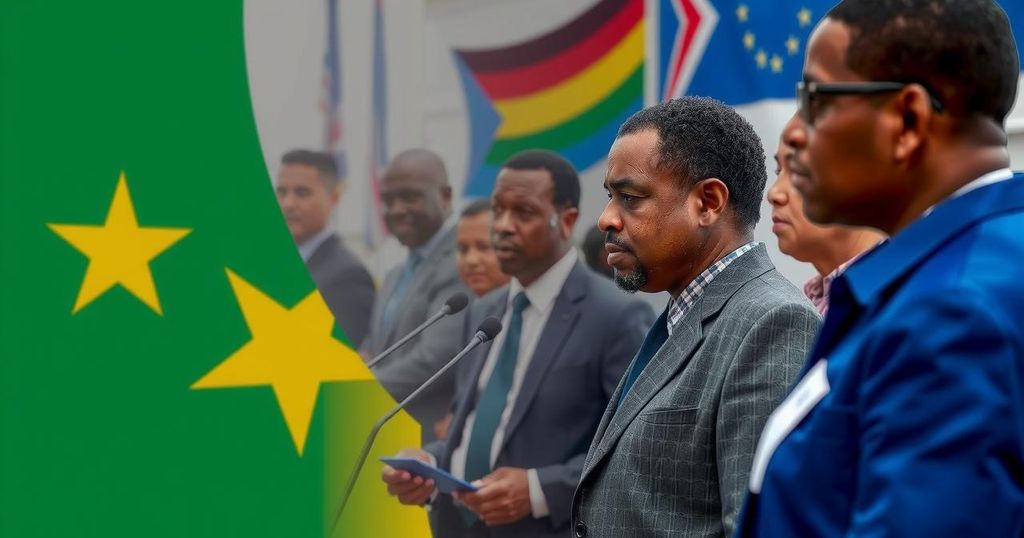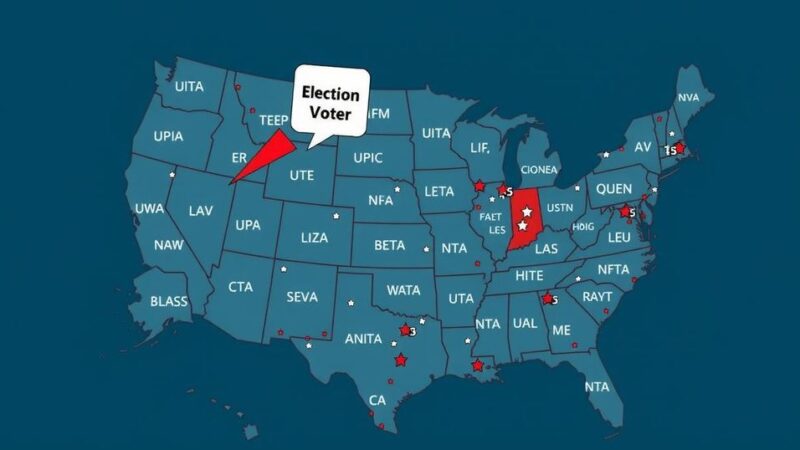The EU reports significant electoral irregularities in Mozambique’s recent elections, prompting protests led by independent candidate Venâncio Mondlane amid allegations of police involvement in political violence. As tensions rise, the call for transparency in the election process intensifies, with mounting pressure on authorities to investigate the killings of Mondlane’s associates and address public grievances regarding electoral integrity.
The European Union (EU) election observers have reported that irregularities have been identified in the voting results for the recent elections in Mozambique, further escalating the unrest within the country. On Monday, large crowds gathered for protests organized by independent presidential candidate Venâncio Mondlane, who has accused security forces of being responsible for the fatal shooting of his lawyer, Elvino Dias, along with another political associate, Paulo Guambe, last Friday. The security forces have denied any involvement in these events. The official results of the general elections, which took place on October 9, are slated for announcement by this coming Friday. The EU observer mission indicated it had discovered “irregularities during counting and unjustified alteration of election results at polling stations and district levels.” They have urged the electoral authorities to ensure a transparent and credible counting process, emphasizing the importance of traceability of the results from polling stations. Reports of vote-buying, inflated voter rolls favoring the ruling Frelimo party, and intimidation of voters have emerged from the International Republican Institute, which has also dispatched an electoral observation mission to Mozambique. The national election results are expected to be made available on the electoral commission’s website; however, the commission recently reported that its site had experienced a cyber-attack and remains non-operational. Venâncio Mondlane, the 50-year-old presidential candidate backed by the opposition party Podemos, has declared himself victorious while alleging that the killings of his aides are politically motivated. He asserted, “This was a crime committed by the defence and security forces. There’s no doubt about it. The special forces killed Elvino [Dias].” Following the killings, Mondlane mobilized protests in various cities, leading to violent confrontations with police who employed live ammunition, tear gas, and armored vehicles to disperse demonstrators in the capital, Maputo. Roadblocks comprising burning tires and barricades were erected by protesters, with reports of multiple arrests and injuries emerging from cities including Beira and Nampula. On Monday, local shops temporarily closed, but began reopening the following day. The funeral for Elvino Dias is scheduled for Wednesday, with Mondlane planning additional protests on Thursday and Friday. There is mounting pressure on Mozambican authorities to apprehend those responsible for the shootings, receiving backlash from eminent figures, including former President Armando Guebuza, as well as from international entities like the UN, the US, and the EU. Celebrated author Mia Couto has described the killings as a “crime against the nation.” Historically, Mozambique has been governed by a single party, Frelimo, since achieving independence from Portugal. With President Filipe Nyusi stepping down after his two-term limit, the new presidential candidates include Frelimo’s Daniel Chapo, Venâncio Mondlane, former Renamo leader Ossufo Momade, and Lutero Simango from the Mozambique Democratic Movement.
The current political tension in Mozambique is rooted in a history of governance by the Frelimo party, which has held power since the country gained independence from Portugal. The recent elections have reignited longstanding opposition grievances, particularly concerning electoral integrity, government accountability, and political violence. The protests led by Venâncio Mondlane illustrate a significant challenge to the ruling party’s hold on power as citizens seek transparency and justice following the troubling events surrounding the elections.
The situation in Mozambique is precarious as allegations of election fraud, political violence, and state repression continue to unfold. The EU’s findings of irregularities during the election process have exacerbated public unrest, leading to calls for justice for the victims of violence. With the upcoming electoral results and ongoing protests, the actions of the Mozambican authorities in response to these events will be critical for the country’s political future. The pressure from both national and international arenas to ensure fair electoral practices and accountability for violence is potentially a turning point in Mozambique’s democratic evolution.
Original Source: www.bbc.com






